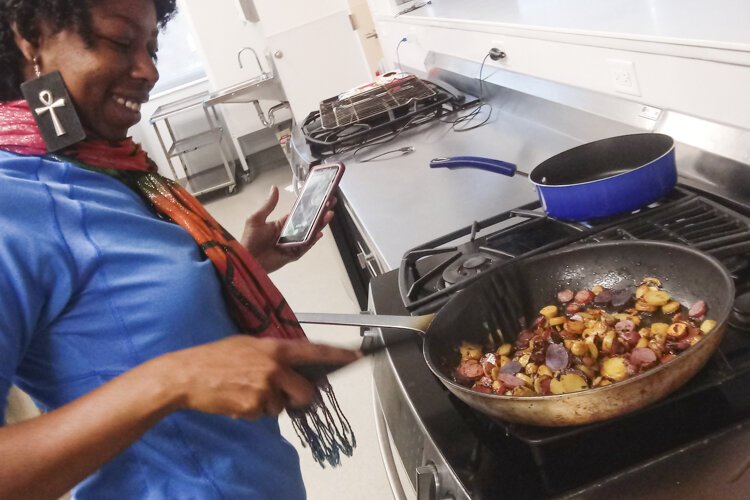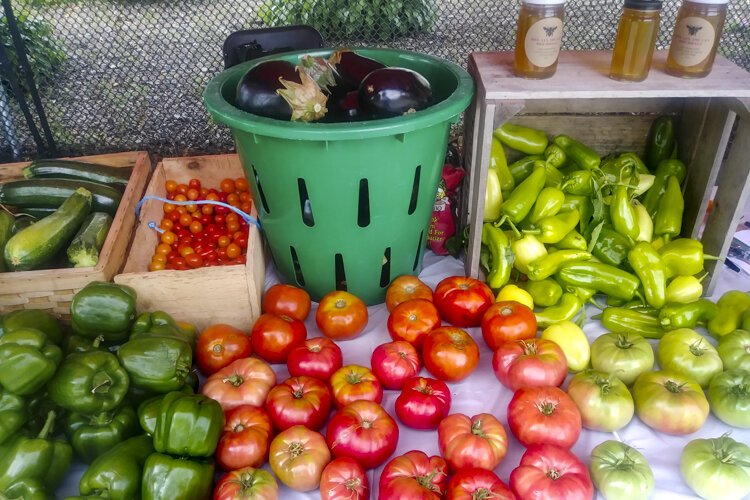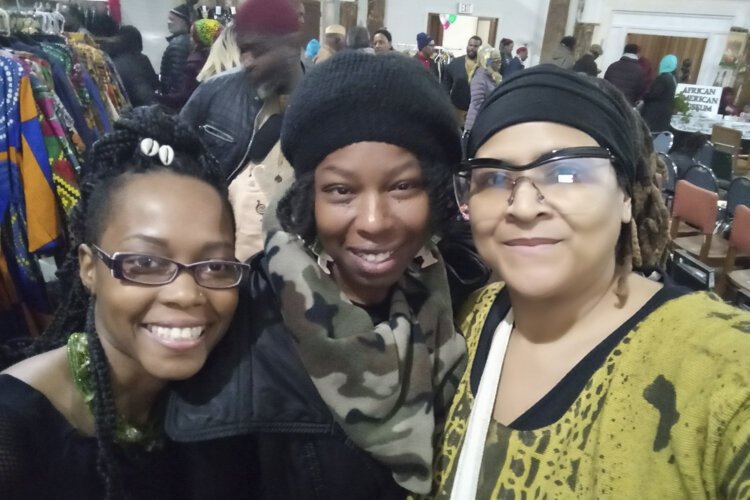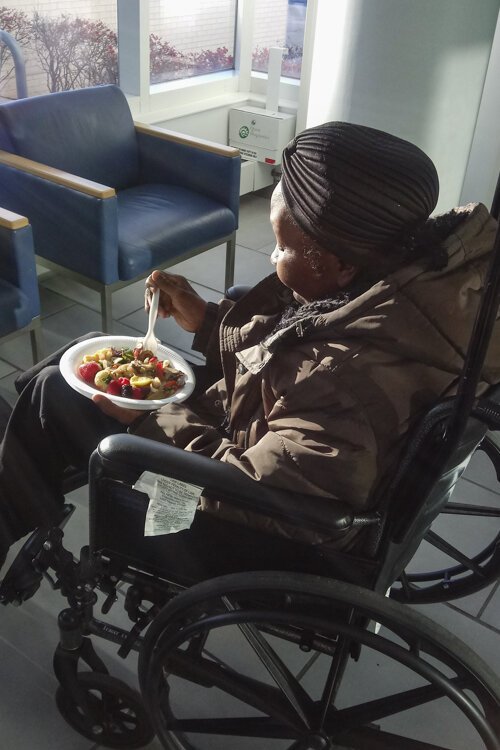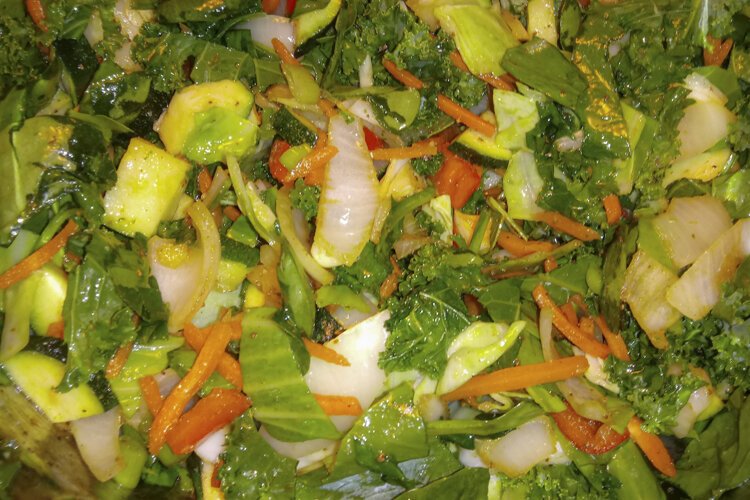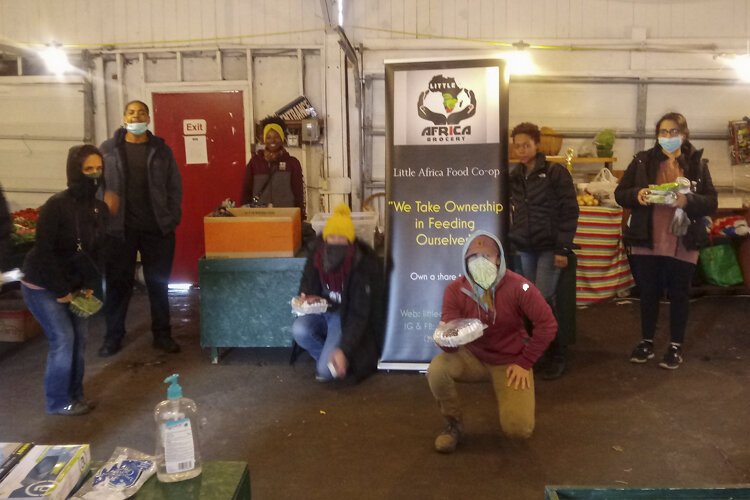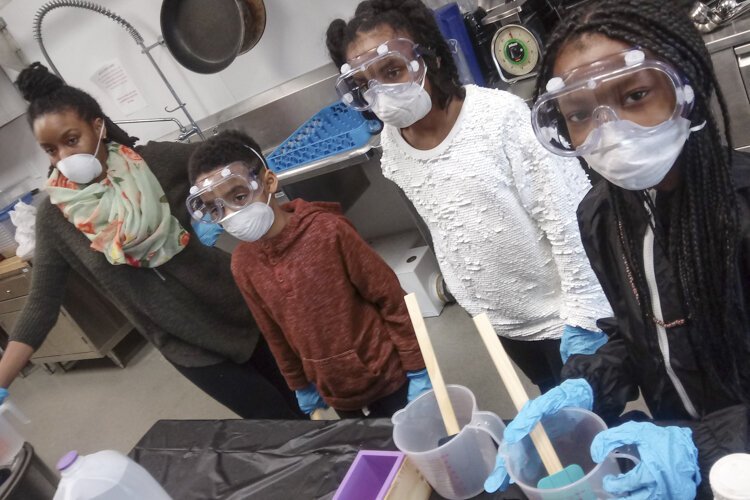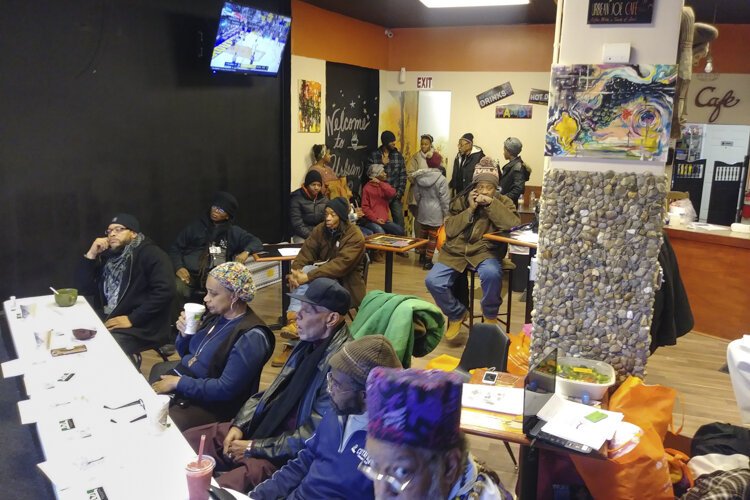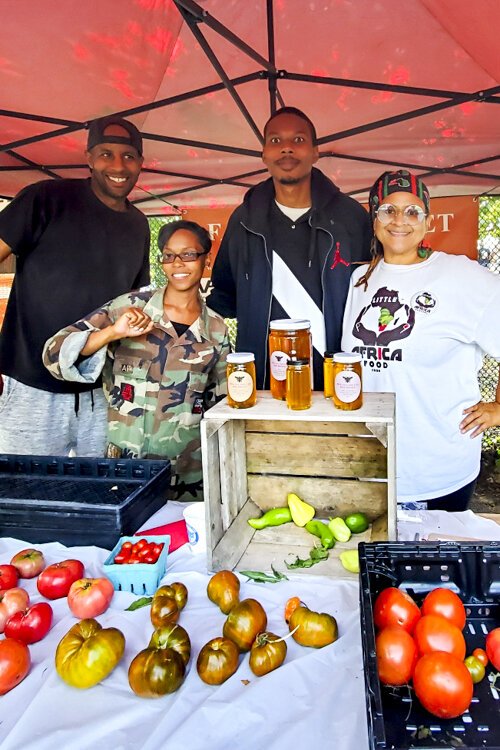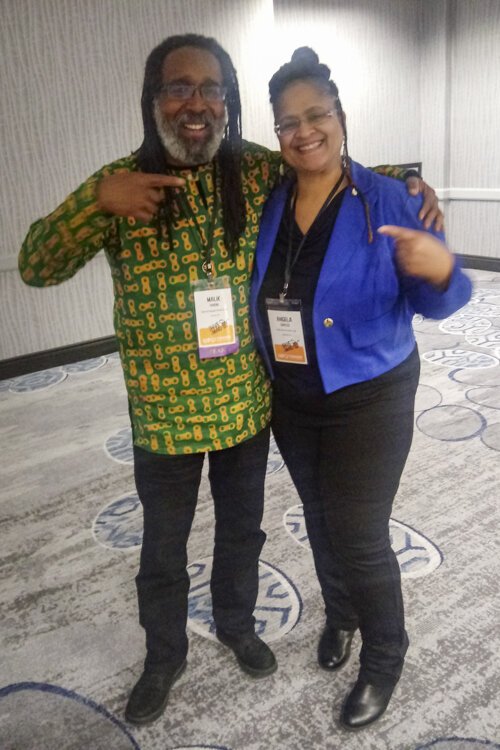Little Africa Collaborative brings food and nutrition education to Cleveland’s food deserts
More than 59% of Cleveland’s population live in food deserts—areas lacking access to nutritious, affordable food and produce—according to a 2019 report issued by Creating Healthy Communities.
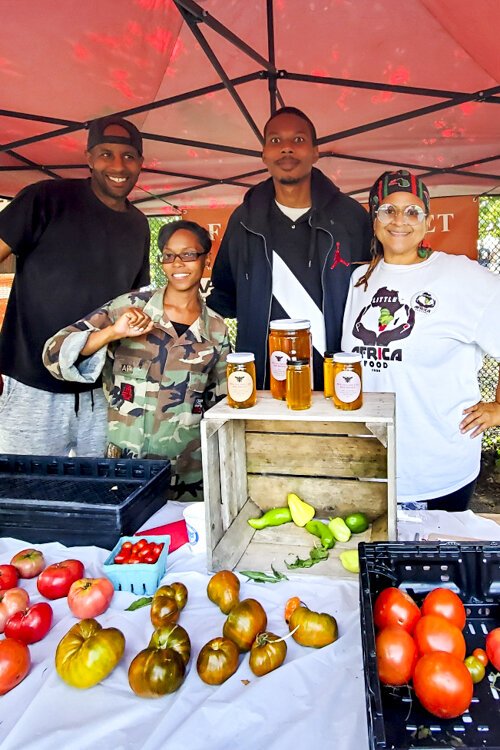 LAFC at FreshFestThe Little Africa Food Collaborative wants to change those statistics by both bringing food resources and nutrition education into some of Cleveland's impoverished—and often overlooked—communities.
LAFC at FreshFestThe Little Africa Food Collaborative wants to change those statistics by both bringing food resources and nutrition education into some of Cleveland's impoverished—and often overlooked—communities.
“People are dying,” says Angela Sayles, head of business development and treasurer for the collaborative. “It is important to educate the people on how clean, natural foods can be used for healing the body and mind. Little Africa is appearing as an oasis in the desert.”
Founded in 2016, Little Africa Food Collaborative’s mission is to “provide an inexpensive healthy food source for impoverished, urban communities. We strive to create an economic, social, and cultural independence because ‘you are what you eat.’”
Little Africa partners with various Community Development Organizations (CDCs), agricultural, food, and nutrition education organizations to get the word out about eating healthy. Team members are regularly at the Coit Road Farmers Market, working with FoodStrong to educate families on the importance of healthy eating and works with Environmental Health Watch, Project Save, FreeThinkers87, Feed the Soul Project, Garden Valley Neighborhood House hosted at the the Friendly Inn Settlement and Hough Green Growers Consortium in securing food and other emergency services to residents in need.
Last month, amid the coronavirus pandemic, Little Africa helped more than 350 families with meals, hygiene kits, and safety programs in partnership with the Central-Kinsman community collaborators. Then the organization got a financial boost to its mission.
COVID-19 assistance
In April, the collaborative was awarded $47,000 from the Greater Cleveland COVID-19 Rapid Response Fund coalition to deliver food, equipment, supplies, and educational information to mentally and physically disabled residents and homeless populations on Cleveland’s near east side.
At the same time, the Union Miles Development Corporation (UMDC) received $50,000 from the Rapid Response Fund to assist the Little Africa Food Collaborative with food and distribution of crisis preparation kits in the Union Miles, Harvard and Mt. Pleasant communities.
Roshawn Sample, executive director of the UMDC, says that with 91% of the neighborhood’s residents living below the poverty level, the work Little Africa is doing is critical. When COVID-19 hit Cleveland, she says CMDC was flooded with calls—especially from the senior population—about what to do and where to go.
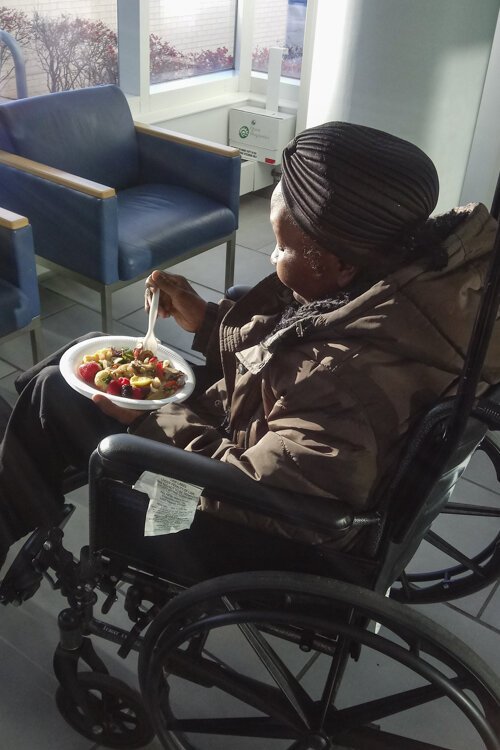 While UMDC offered $25 gift cards to Miles Supermarket, 4127 E. 131st St., to the first 25 people who called, Sample says she knew it wasn’t nearly enough to assist the worried residents. So, she says they started working with Little Africa to help not only Union Miles, but Mr. Pleasant and Harvard as well.
While UMDC offered $25 gift cards to Miles Supermarket, 4127 E. 131st St., to the first 25 people who called, Sample says she knew it wasn’t nearly enough to assist the worried residents. So, she says they started working with Little Africa to help not only Union Miles, but Mr. Pleasant and Harvard as well.
“We realized that we needed to do more, and instead of reinventing the wheel we wanted to partner with a grass roots organization that was already doing the work, and that was Little Africa,” Sample says. “Not only are we able to provide meals to seniors, but families in need. Not only produce, but hot meals and toiletries to residents.”
Sayles says Little Africa and Union-Miles partnered with each other to ensure services get to residents living in the Union-Miles neighborhood. But the partnership has taken both organizations much deeper into the Cleveland community.
“I feel that in order to get things done and service a wide range of people, collaboration is necessary,” Sample says. “I’m from this neighborhood, so it gives me great pleasure and it is an honor to serve residents on the southeast side of Cleveland.”
Additionally, Little Africa received two grants from the Sisters of Charity Foundation totaling $11,000 to distribute hot meals, food distributions, food kits, and hygiene kits through the end of July at weekly or monthly sites around Cleveland's east side.
Little Africa is also working with POPCE on the city’s west side in distributions. Call Little Africa at (216) 367-9120 for times and locations.
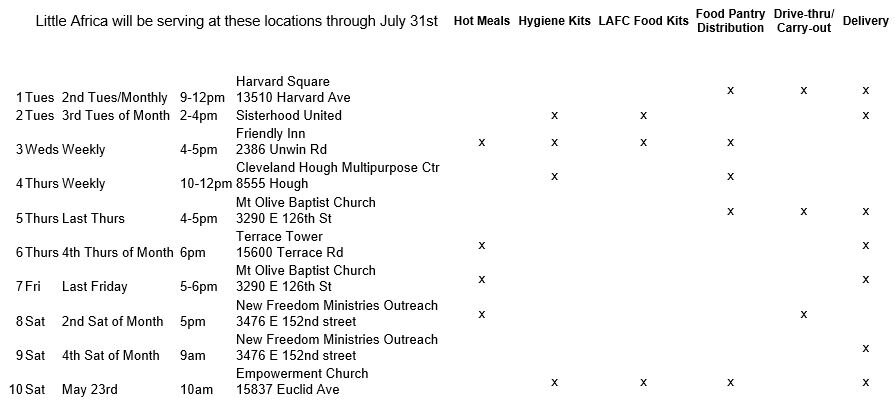
A cooperative approach
Even with the COVID-19 Rapid Relief grant, Sayles says Little Africa’s mission is not yet fulfilled. Sayles has been one of a group of dedicated community members working with local organizations and city officials to bring Little Africa Food Co-ops to Cleveland’s poor, mostly minority urban neighborhoods. The efforts have focused on neighborhoods like Central-Kinsman, Hough-Fairfax, East Cleveland, Union-Miles, Mt. Pleasant, and Clark-Fulton .
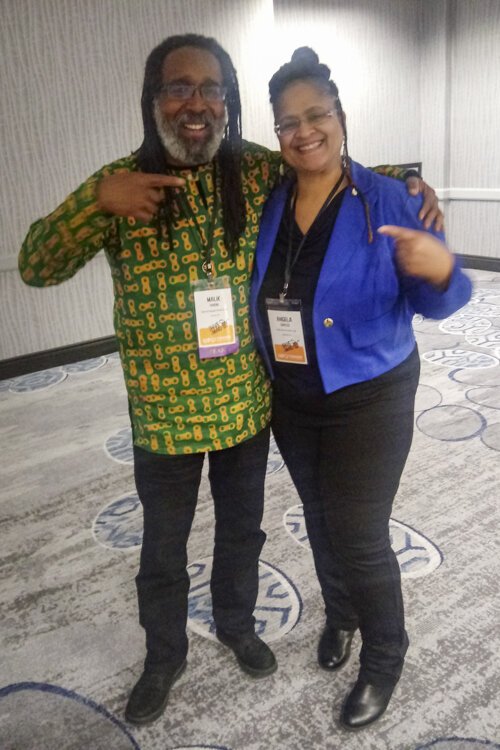 LAFC Detroit People Food Coop“Our communities are in a bad way,” says Sayles. “We want to open up community-owned grocery stores in those communities.”
LAFC Detroit People Food Coop“Our communities are in a bad way,” says Sayles. “We want to open up community-owned grocery stores in those communities.”
The community-owned grocery stores would rely on co-op memberships that would give member-owners access to dry goods, meat, produce, deli, and other departments. Sayles says they will work with local farmers and suppliers to attain locally produced food.
Additionally, the co-ops will be an education hub for teaching residents about all areas of cultural wellness and healthy living where and staff will offer nutrition and cooking classes.
The first co-op location has not yet been decided, but Sayles says that Little Africa has a short list of communities being considered for a potential site location
Co-op members would have to pay a one-time $150 share (which can be split into 15 $10 monthly payments). There are also Community Shares for $150, in which each member of a four-person household has a share. Both memberships are for life once the $150 is paid. Support Memberships for $125 help local farmers and food producers, allow Little Africa to donate unused food to local food pantries and kitchens, and provide access to Little Africa events and classes.
“We have opportunities to really be planted in several communities,” she says. “The community has to want it; the community has to own it and pay [membership] shares. It involves a high level of community engagement.”


